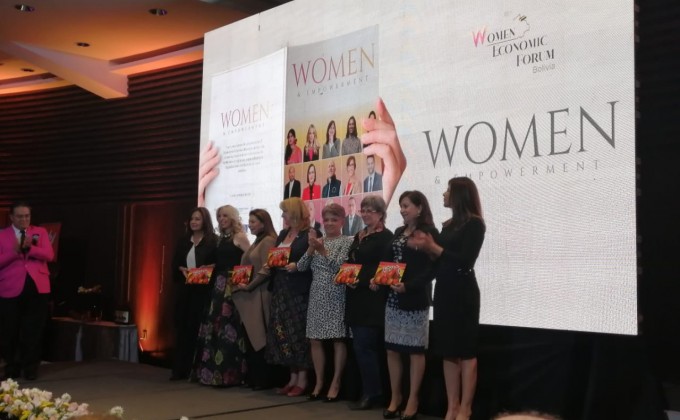
An article published in the Bolivian magazine "Women & empowerment", written by Marcela Vallejos, director of CECI in Bolivia.
Cooperation, respect, equity, commitment and integrity are values that the Center for International Studies and Cooperation (CECI) works to reduce poverty, exclusion and inequality. Our vision of change is a world without poverty and one that celebrates inclusion and diversity.
Therefore, our programs and projects have as their ultimate goal the social, political, legal and economic empowerment of women. This gender transformative approach, where women, young women and girls are the protagonists of their own development, is the basis of our commitment to sustainable change.
Poverty, understood as the absence of possession, power and knowledge, mainly affects women and girls, limiting their ability to generate and manage resources.
By limiting opportunities for them to achieve greater autonomy and economic empowerment, women, particularly young women, see their ability to fulfill themselves as individuals, in families and in their communities diminished. In this approach, poverty and lack of access to economic resources are central factors that limit the ability of women and girls to make decisions at the personal, family and community levels and in their broader social environment.
For the economic empowerment of women and girls, CECI proposes actions in three main areas: (i) acquisition of leadership, digital and technological skills, to improve their ability to grow a business and/or access and retain quality employment; (ii) strengthening women-led SMEs by improving their business model, making the value chains in which they participate more inclusive and improving their competitive market access; and (iii) supporting the reform of entrepreneurial ecosystems to transform gender relations and strengthen women's leadership and participation in relevant decision-making spaces.
The transformation of the business ecosystem and the political environment in which women-led MSMEs operate is indispensable for the implementation of policies, programs and services that meet their needs and interests. This transformation is also the basis for women's participation in decision-making spaces. However, this is worthless if we do not consider their time constraints and the impact of care work on their ability to start and sustain a business. Without measures to combat harassment and gender-based violence, women's ability to emerge is severely limited.
The impact of GBV in women-led businesses is undeniable, whether it is the medical leave women request when they experience sexual, physical and psychological violence, or the time and cost of legal proceedings they face. Gender-based violence is a violation of human rights and has direct implications for a country's development.
In a polarized world dominated by patriarchal structures that limit the emergence of new paradigms of equality and equity, CECI's economic empowerment model and the gender-transformative approach we propose positively address the causes of gender inequalities between men and women and demonstrate our organization's commitment to women's rights, including their economic rights.